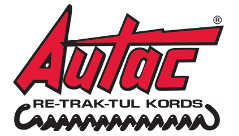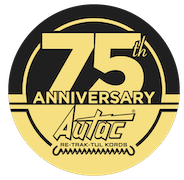Industrial electric cords are essential components in a wide range of industrial settings, providing power to machinery, equipment, and tools. Selecting the right cord for your specific needs is crucial for ensuring safety, reliability, and efficiency in your operations. In this comprehensive guide, we’ll explore everything you need to know about choosing the right industrial electric cord for your applications.
Factors to Consider When Choosing an Industrial Electric Cord
When choosing an industrial electric cord, there are several factors to consider to ensure optimal performance and safety.
Durability and Construction Materials
Industrial environments can be harsh and demanding, so it’s essential to choose cords constructed from durable materials such as heavy-duty rubber or thermoplastic elastomers. Look for cords with reinforced insulation and sturdy connectors to withstand the rigors of industrial use.
Cord Length and Gauge
Consider the length and gauge of the cord to ensure it meets the power requirements of your equipment and provides sufficient reach without voltage drop or overheating. Longer cords offer greater flexibility, while thicker gauges can handle higher power loads.
Outdoor vs. Indoor Use
Determine whether the cord will be used indoors or outdoors, as this will impact the required weatherproofing and insulation features. Outdoor cords should be designed to withstand exposure to moisture, UV radiation, and extreme temperatures.
Safety Features and Certifications
Safety should always be a top priority when working with electrical equipment. Look for cords with safety features such as grounding wires, strain relief, and UL or CSA certification to ensure compliance with industry standards and regulations.
Types of Industrial Electric Cords
There are several types of industrial electric cords available, each designed for specific applications and environments.
Heavy-Duty Electric Cords
Heavy-duty electric cords are designed to withstand frequent use and heavy loads, making them ideal for powering industrial machinery and equipment in demanding environments.
Commercial-Grade Electric Cords
Commercial-grade electric cords are suitable for lighter-duty applications such as powering hand tools, lighting fixtures, and small appliances in commercial and industrial settings.
Power Cords for Industrial Equipment
Power cords for industrial equipment are specialized cords designed to provide power to specific types of machinery and equipment, such as welders, generators, and compressors.
Extension Cords for Industrial Use
Extension cords for industrial use provide additional reach and flexibility in industrial settings, allowing you to power tools and equipment in hard-to-reach areas.
Specific Features and Considerations
When selecting an industrial electric cord, consider the specific features that will best suit your needs and preferences.
Weatherproof and Waterproof Features
Outdoor cords should be equipped with weatherproof and waterproof features to withstand exposure to moisture, rain, snow, and extreme temperatures.
High-Temperature Resistance
Choose cords with high-temperature resistance to prevent melting or damage when exposed to heat sources such as welding equipment or industrial ovens.
Chemical and Abrasion Resistance
Look for cords with chemical and abrasion-resistant insulation to withstand exposure to oils, solvents, chemicals, and rough surfaces without degradation.
Flexible vs. Rigid Cords
Consider whether you need a flexible or rigid cord based on your application requirements and workspace constraints. Flexible cords offer greater maneuverability, while rigid cords provide stability and durability in fixed installations.
Installation and Maintenance Tips
Proper installation and maintenance are essential for maximizing the lifespan and performance of your industrial electric cord.
- Follow manufacturer guidelines for installation and use to ensure safety and compliance with regulations.
- Regularly inspect the cord for signs of wear, damage, or degradation, and replace it if necessary.
- Store and handle the cord properly to prevent kinks, twists, and tangles that could damage the insulation or conductors.
Conclusion
Choosing the right industrial electric cord is crucial for ensuring safety, reliability, and efficiency in your industrial operations. By considering factors such as durability, cord length, weatherproofing, and safety features, you can select the perfect cord to meet your specific needs and withstand the demands of your environment. Invest in high-quality cords, follow proper installation and maintenance practices, and enjoy reliable power and performance for years to come.
FAQs:
Can I use an indoor electric cord outdoors?
It’s not recommended. Indoor cords may not have the necessary weatherproofing or insulation to withstand outdoor conditions.
What gauge cord do I need for my industrial equipment?
Check the power requirements of your equipment and choose a cord with a gauge rating that matches or exceeds those requirements to ensure safe and efficient operation.
How do I store and handle my industrial electric cord properly?
Store the cord in a cool, dry place away from direct sunlight and extreme temperatures. Avoid kinks, twists, and tangles when handling the cord to prevent damage to the insulation or conductors.
Do I need special training to install industrial electric cords?
While basic electrical knowledge is helpful, it’s always best to consult with a qualified electrician or technician for installation and maintenance tasks to ensure safety and compliance with regulations.
What safety certifications should I look for when choosing an industrial electric cord?
Look for cords with UL or CSA certification to ensure compliance with industry standards and regulations for safety and performance.



Recent Comments